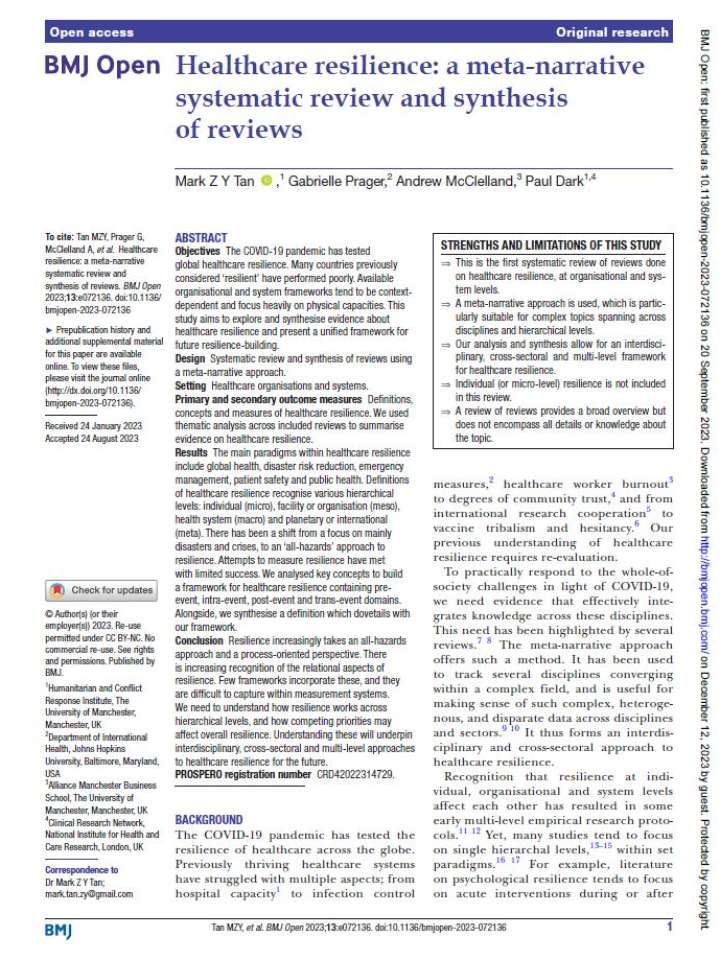Healthcare resilience: a meta-narrative systematic review and synthesis of reviews
This study aims to explore and synthesise evidence about healthcare resilience and present a unified framework for future resilience-building. The COVID-19 pandemic has tested global healthcare resilience. Many countries previously considered ‘resilient’ have performed poorly. Available organisational and system frameworks tend to be context-dependent and focus heavily on physical capacities.
The main paradigms within healthcare resilience include global health, disaster risk reduction, emergency management, patient safety and public health. Definitions of healthcare resilience recognise various hierarchical levels: individual (micro), facility or organisation (meso), health system (macro) and planetary or international (meta). There has been a shift from a focus on mainly disasters and crises, to an ‘all-hazards’ approach to resilience. Attempts to measure resilience have met with limited success. We analysed key concepts to build a framework for healthcare resilience containing pre-event, intra-event, post-event and trans-event domains. Alongside, we synthesise a definition which dovetails with our framework.
Explore further

